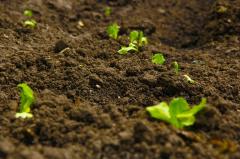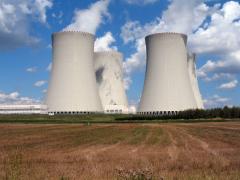The Environmental Benefits of Organic Agriculture
Even though some farmers who grow their plants in conventional way say that organic agriculture does not have more environmental benefits, facts speak for themselves. The Organic Trade Association claims that if all farmers in the United States switched to organic productions, we would stop around 500 million pounds of dangerous pesticides from entering the environment each year. This would have a major impact on all aspects of the environment, and here it is how.
Water
Many practices of conventional agriculture require extensive use of synthetic fertilizers and pesticides that pollute underwater. This is a major issue in many agricultural areas. In organic agriculture no synthetic fertilizers are used. Instead of these, organic farms rely on the use of natural fertilizers such as compost, animal manure or green manure. Besides enhancing soil structure this also increases water infiltration. Organic systems that are managed properly have better nutrient retentive abilities and reduce the pollution of underwater. In some countries like France and Germany, where underwater pollution is a big issue, the use of organic materials is encouraged as a restorative measure.
Climate
In conventional agriculture, many fossil fuels are used. Not only are they used on farms but also in the production of pesticides and fertilizers. These all contribute to the greenhouse effect and global warming. On the other hand, organic agriculture does not have negative impact on the climate. The use of renewable energy that is encouraged in organic agriculture actually mitigates global warming. These practices reduce the use of fossil fuels and provide carbon sequestration in the soil. Organic agriculture thus strengthens agro-ecosystems and helps farmers learn how to confront and challenge changes that appear in the climate.
Soil
Some of the most important organic agricultural practices are crop rotations, crop covers and inter-cropping all of which help build the soil. This does not only improve its formation and structure but also encourages flora and fauna and helps build a more solid structure. These practices also help control the soil erosion. It is less exposed to the erosive forces and its productivity is increased. Even though organic agriculture relies heavily on the use of renewable resources, sometimes it is necessary to supplement organic soils with some other resources such as calcium, magnesium or potassium.
GMOs
GMOs are one of the most discussed issues of today. Even though the GMOs’ impact on environment and health is not yet entirely understood, their use is not permitted in organic agriculture. Still, since a big number of farmers that deal with convention agriculture use GMOs the organic farms won’t be able to ensure that their products have not GMO free. This will happen because of the GMOs are transmitted into our environment through air (by pollen for example).
Biodiversity
Without the use of dangerous pesticides and fertilizers the soil is able to attract more species of plants and animals to it. The use of renewable resources actually creates a healthier gene pool which makes a perfect home for some re-colonizing species. Some of these species are pest-predators or pollinators and their presence is of great importance. Organic agriculture also offers farmers to grow certain plants with improved flavor and aroma. For example, when growing cannabis not only that these are improved but with some strains its potency is increased as well. Be sure to learn more about strains if you plan to start an organic garden.
It is obvious that organic agriculture has many benefits for our environment. So if you are thinking about starting a garden, deciding on organic farm would be a great option. Be sure to grow plants which are perfect for this type of garden.


.jpg.31908eda73b23c640f6abba51fe4ba8a.jpg)



0 Comments
Recommended Comments
There are no comments to display.